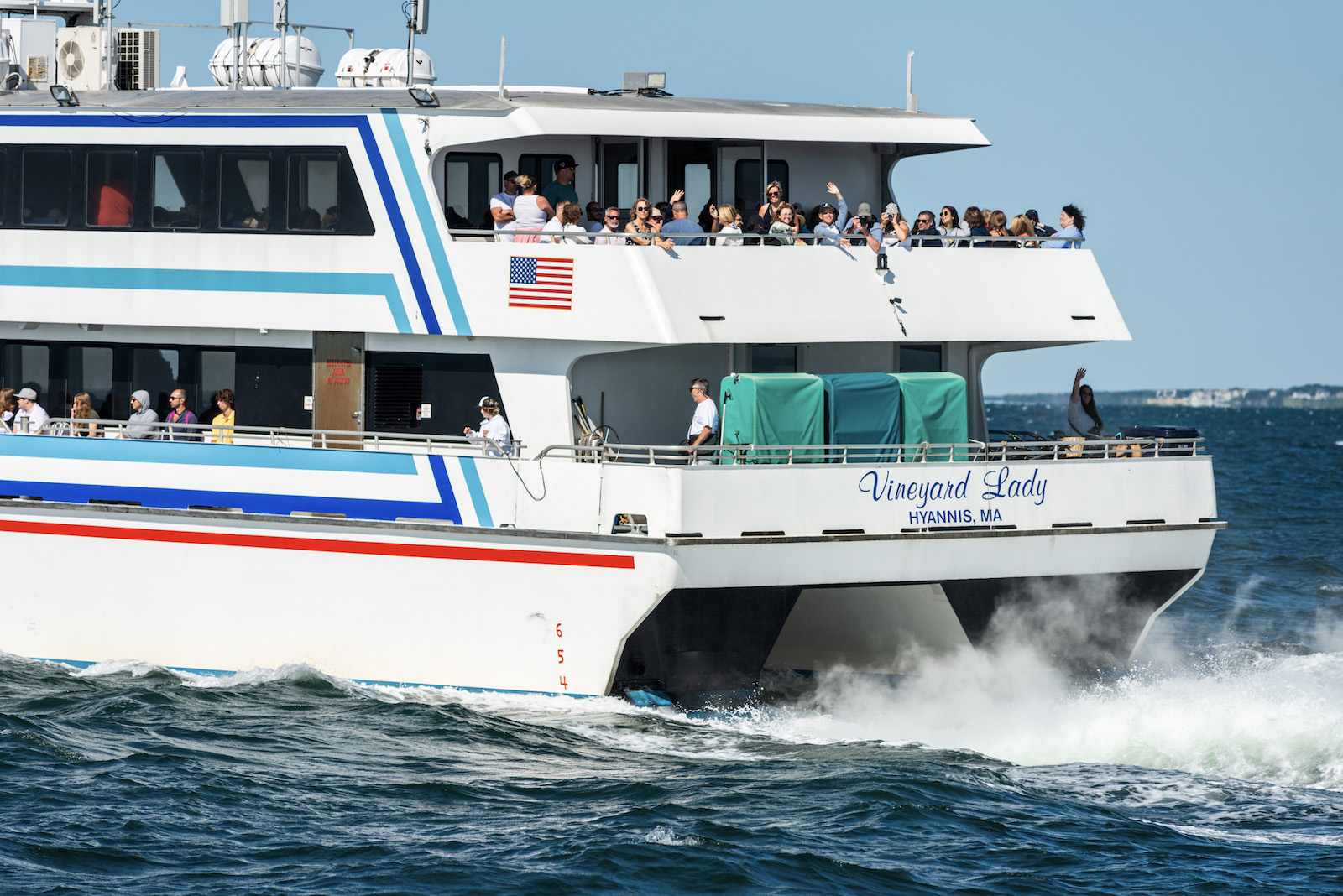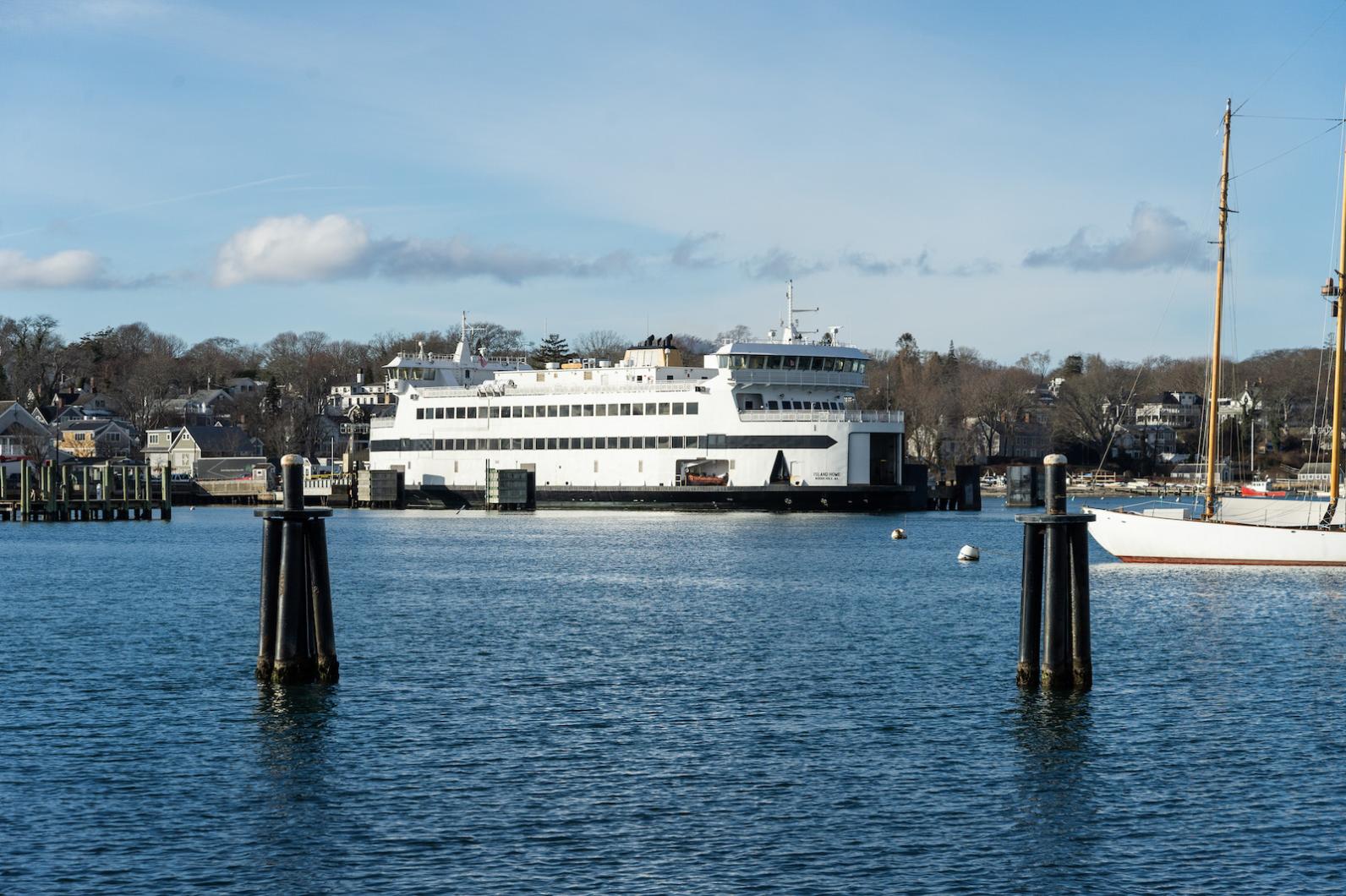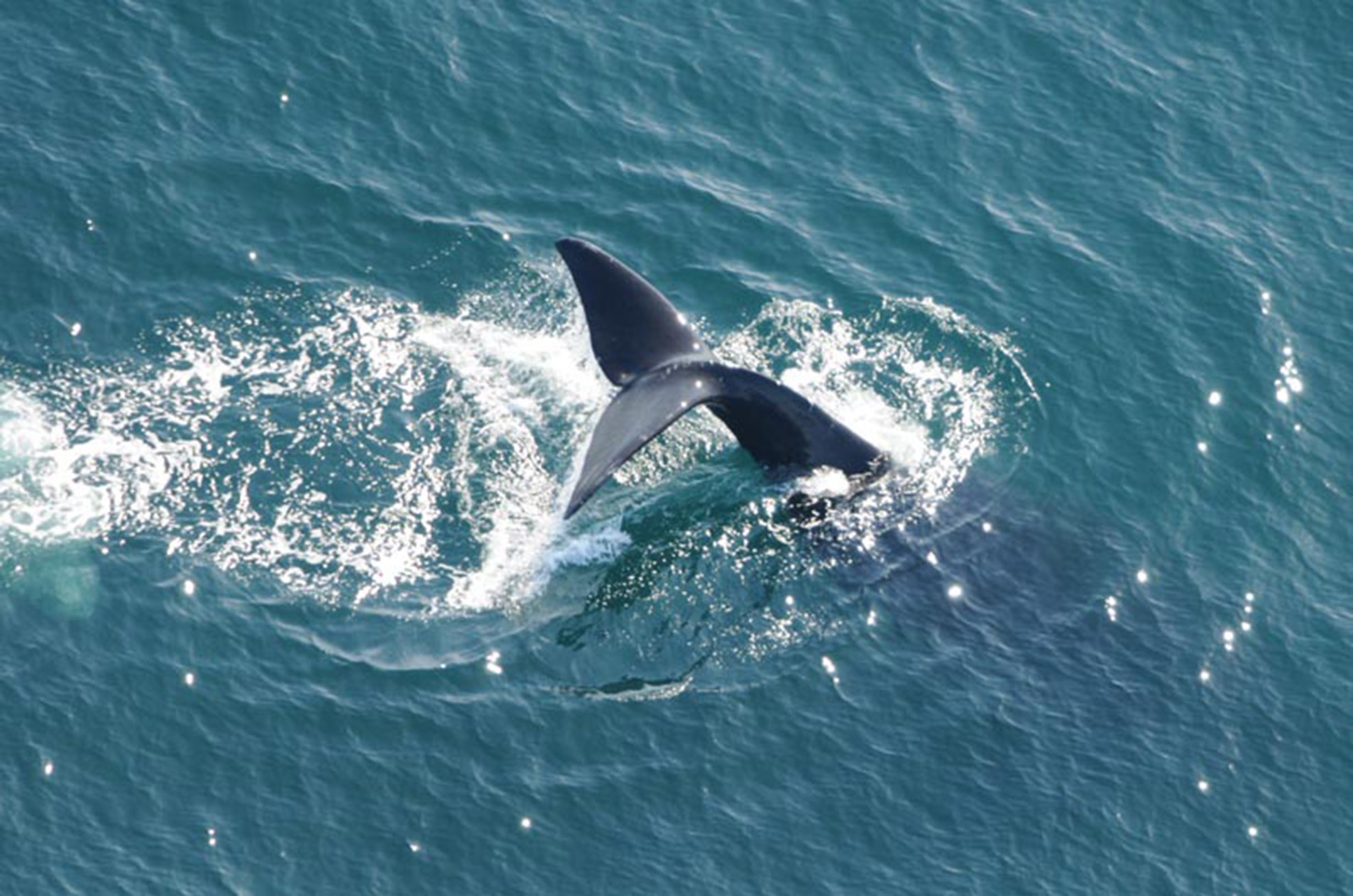A proposal that would have drastically reduced the number of ferry trips to the Vineyard and Nantucket was withdrawn by federal regulators this week.
The National Oceanic and Atmospheric Administration on Wednesday pulled the draft rules, which would have lowered the speed limit for boats across the East Coast in order to protect the critically endangered North Atlantic right whales.
NOAA announced the withdrawal in a filing in the Federal Register “in light of the numerous and ongoing requests from the public for further opportunity to review and engage with the Agency on the proposal.”
The Steamship Authority, Islanders and other ferry services had railed against the rules, saying right whales are rarely seen in the Vineyard Sound. The rules would have put a 10-knot speed limit for vessels that are 35 feet or longer from November through May.
In all, about 90,000 public comments were made on the proposed restrictions.
“Despite its best efforts, [the National Marine Fisheries Service] does not have sufficient time to finalize this regulation in this Administration due to the scope and volume of public comments,” NOAA wrote in the filing.
The Steamship Authority estimated that the rule would have eliminated about one seventh of round trips on the Vineyard route, where the ferries travel at about 13 knots. On Nantucket, the rules would have cut deeper, likely eliminating the fast ferry that Islanders and tourists depend on to make the 30-mile crossing in about an hour.
Hits to the Nantucket route on the Steamship Authority would likely have affected the ferry line’s bottom line, sending ripple effects to the Vineyard. The rule would have also cut back on some of the other ferry services to the Vineyard, including the Hy-Line ferry and Seastreak.
“While we wholeheartedly agree on the necessity of protecting the right whale, we are grateful that the proposed rule has been withdrawn,” Steamship Authority general manager Robert Davis said in a statement Wednesday. “The current right whale sighting data and decades of our own captains’ experience showed that the proposed application of this rule to the waters of Vineyard Sound and Nantucket Sound was inappropriate and would have been devastating to the economies of Nantucket and Martha’s Vineyard.”
U.S. Rep. Bill Keating, who represents the Vineyard, Cape and Nantucket in Congress, said the regulation was pulled back while it was in the final stages of the rulemaking process. The change could have affected the Islanders’ ability to get medical appointments on the mainland, the region’s tourism economy and even sports teams’ games.
“I think it was the right decision,” Mr. Keating said. “To their credit, they looked at things clearly...I think the process worked.”
NOAA noted that the withdrawal of the proposed rule does not preclude federal regulators from taking future action to help safeguard the right whale, a species commonly found along the East Coast that is on the brink of extinction.
Conservationists have pushed for the speed limits because vessel strikes are one of the leading causes of whale deaths. The New England Aquarium said the withdrawal was a serious setback to the recovery of the species.
The rules were proposed more than two years ago, and since then four right whale deaths have been due to vessel strikes in U.S. waters, according to the aquarium.
“Failing to implement stronger vessel strike protection measures puts these animals at further risk of extinction,” said Dr. Jessica Redfern, a right whale researcher at the aquarium. “To survive, right whales require immediate, decisive, and effective solutions to protect individuals from precent deaths.”

James Malkin, the Vineyard’s representative on the Steamship board of governors, said he was grateful for efforts from elected officials to scuttle the rules.
“I strongly support preserving our marine life,” he said. “But the significant negative effect of SSA trip reductions on the lives and wellbeing of residents of Martha’s Vineyard and Nantucket due to the proposed speed limits despite the lack of right whale sightings in Vineyard and Nantucket Sound makes me pleased with the decision of the agencies involved.”
Gov. Maura Healey last month wrote to NOAA, saying the rules would hit the Vineyard and Nantucket hard, while doing little to protect right whales. She called for an exemption for the Vineyard and Nantucket sounds.
“The inclusion of Nantucket and Vineyards sounds in this proposed action would not meaningfully increase protection for this endangered species but would have devastating impacts on residents and businesses on Cape Cod and the Islands,” Governor Healey wrote to NOAA administrator Richard Spinrad on Dec. 23.
In a statement Wednesday, Ms. Healey thanked NOAA for listening to the concerns from Massachusetts.
“This decision is good news for residents and businesses on Cape Cod and the Islands, and we look forward to continuing to work to protect right whales and the local economy,” she wrote.







Comments (5)
Comments
Comment policy »